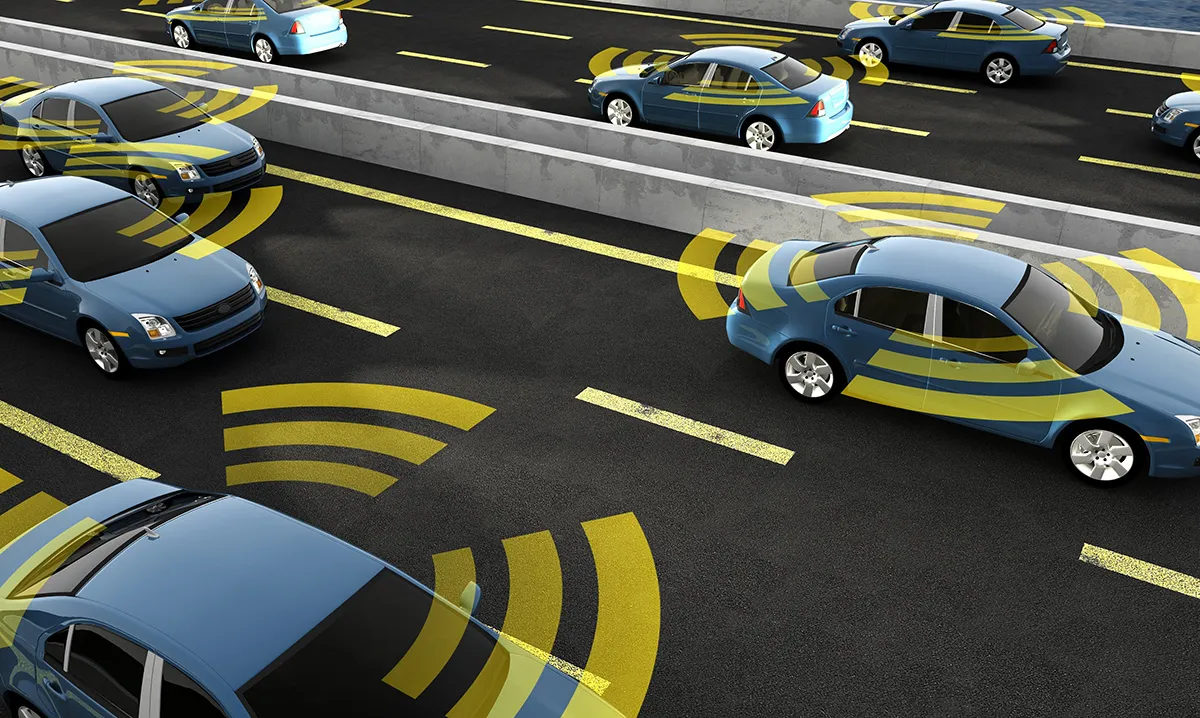Blockchain is a distributed ledger system that underpins digital currencies like Bitcoin and Ethereum. It provides a secure, unalterable way to exchange data.
Telematics in self-driving vehicles can improve vehicle-to-vehicle, vehicle-to-infrastructure and in-vehicle operations, information exchange and decision-making.
Authenticity
Blockchain technology is critical for guarding against unauthorized access or modification of self-driving vehicles. The encrypted blockchain network ensures that only authorized parties can access the data through private keys; this prevents accidental or unauthorized changes while protecting against external attacks.
Cars will need to communicate with multiple roadside processors, infrastructure systems and their own components using different blockchain networks, so it is vital that communication be secure, reliable and real-time. Using blockchain-based microservices for lock/unlock functions, traffic data logging and automated payments for parking and tolls removes the need for human intervention while maintaining transparency, efficiency and safety — which positively impacts customer satisfaction and retention. In the future, blockchain might also be used for vehicle identification numbers (VINs) along with digital warranty records, wear-and-tear repairs and part maintenance/servicing requirements.
Transparency
A decentralized system of transparent data management from the adoption of blockchain could help self-driving vehicles share information with one another without fear of being hacked or monopolized by other market players.
In addition to exchanging information about their surroundings with each other and local infrastructure to reduce bottlenecks, vehicles equipped with proper blockchain networks might also help avoid accidents by communicating traffic conditions on roads ahead before they encounter them. They could also provide accident alerts to emergency services faster than a driver would have time to make a call.
Moreover, smart contracts based on blockchain on-vehicle data management systems will allow self-driving car owners the ease of automating payment for insurance premiums as well as repair work or bills at toll booths without having to spend time making these payments themselves. These contracts will also reduce fraud and the need for human intervention, making it easier to manage this new technology.
Security
Blockchain technology can be used as a decentralized, transparent and tamper-proof data management system in self-driving vehicles. It can be utilized for driver data management, identity verification, peer-to-peer payments and vehicle sovereignty applications.
Self-driving cars generate enormous amounts of data that needs to be stored and shared securely. Self-driving cars operate by constantly receiving information about their surroundings from sensors and using it to make decisions on what movements to make on the road. Cyber attackers could go after this data or try hacking into one of these vehicles in order to cause an accident.
But the cryptographic features of blockchain’s secure hardware provide tamper-proof transaction and storage capabilities that are ideal for safeguarding such large datasets — which is essential if self-driving cars are going to become as popular as companies hope they would.
Decentralization
A distributed network is more resilient against cyber-attacks than a single point; blockchain’s very nature makes it difficult for hackers or other threat actors to gain unauthorized access. Using blockchain with secure hardware also improves reliability in communications between vehicles, between vehicles and infrastructure systems, and between components within a vehicle — even when threats pose serious challenges to those communications’ uptime.
Every aspect of online taxi services can be tracked using blockchain tech like location, route and status of every vehicle in operation. Users will know they’re using an authentic ride-share service while simultaneously being alerted if anyone attempts hacking IoT devices or any other components on these self-driving taxis because unauthorized access attempts alerts will trigger updates through the secured wireless connection.
Automobile manufacturers are already looking into blockchain-based applications for self-driving cars. IBM is a such company. The company has filed a patent that would allow it to manage information and interactions for its autonomous vehicles on an IBM blockchain network, as well as the technology that will help these cars predict nonautonomous vehicle behavior in their immediate vicinity.


